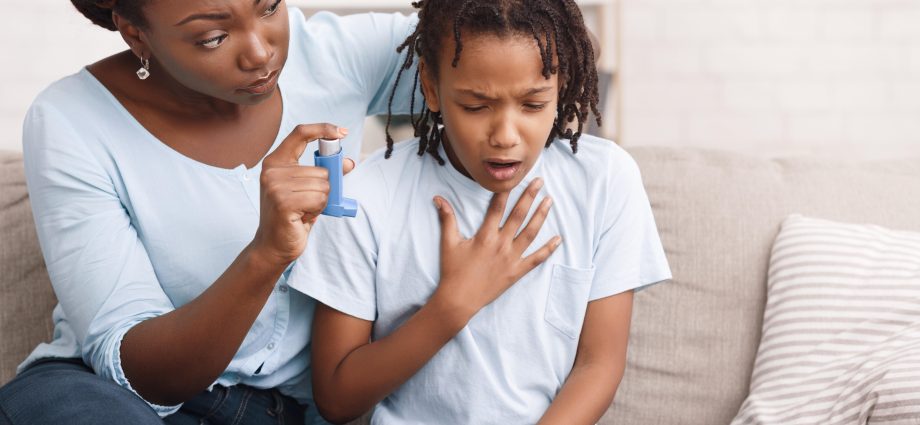MONDAY, July 25, 2022 (HealthDay News) — Inner-city kids are known to be at greater risk for uncontrolled asthma. Now, new research suggests that violent crime and poor school achievement may be two reasons why.
“Experiencing violent crime can result in toxic stress, and decreased educational attainment is associated with lower health literacy,” said study author Dr. Jordan Tyris, a hospitalist at Children’s National Hospital in Washington, D.C. “Toxic stress and lower health literacy are associated with worse asthma health in children, so it is possible that this may explain our findings.”
Health literacy refers to how well a person understands and processes the information needed to make appropriate choices about health care.
Still, other factors not addressed in the new study could also be at play, including structural racism and access to health care, Tyris said.
For the study, her team analyzed data from nearly 15,500 kids with asthma (aged 2 to 17) in Washington, D.C. Those kids who lived in areas with more violent crime and fewer high school graduates were more likely to be hospitalized or seek care in the emergency department for asthma attacks, the study showed.
Turning this situation around will take a village, Tyris said.
Expanding community college options for adults and providing better early childhood education programs in these neighborhoods may make a meaningful difference in school achievement and health literacy.
“We recommend that community-based interventions apply a population-level focus on neighborhoods with increased rates of emergency departments and hospitalizations,” Tyris said. “Engaging community members and other stakeholders to create these interventions and address these important social factors might lead to lower asthma [rates] among children living in these areas.”
The study was published online July 25 in the journal Pediatrics.
The findings mirror what Dr. Kevin Fiori sees in his Bronx, N.Y.-based practice. He is the director of social determinants of health and community and population health at Montefiore Medical Center and an assistant professor of pediatrics at Albert Einstein College of Medicine.
“Adverse social determinants of health, which span unstable housing or poor housing conditions as well as other environmental factors, can negatively impact a person’s health in significant ways,” said Fiori, who reviewed the findings.
It’s time to think outside of the box, he said.
“This new study … demonstrates why it is important to partner with families who might already be doing all of the medical interventions we recommend but struggle with underlying drivers of asthma exacerbations, which could be mold or pests that are present in a family’s household,” Fiori said.
He said parents of kids with asthma should tell their pediatrician what’s going on at home as it may affect their child’s health, and help is available.
“Primary care providers and pediatricians can partner with our patients in meaningful ways like making referrals to food resources, writing letters to landlords explaining how the housing condition is worsening a patient’s asthma, and advocating to representatives about the importance of safe neighbors on family health,” Fiori said.
For example, the New York City Health Department’s Healthy Homes Program conducts free home assessments and will work with property owners to fix any issues, Fiori said.
“Years back, we found that interventions like bringing an exterminator to the homes of almost 400 pediatric patients with persistent asthma could reduce allergy symptoms,” he recalled.
Greater collaboration with community health workers can also make a difference in the health and well-being of these kids, Fiori added.
“By integrating community health workers and other partners on our team with the shared goal of addressing a person’s ‘whole health,’ we can begin to more effectively offer patients expertise and resources as well as help families navigate available social services,” Fiori said.
More information
The American College of Allergy, Asthma & Immunology has more on treating asthma in children.
SOURCES: Jordan Tyris, MD, hospitalist, Children’s National Hospital, Washington D.C.; Kevin Fiori, MD, MPH, MSc, director, social determinants of health and community and population health, Montefiore Medical Center, and assistant professor, pediatrics, Albert Einstein College of Medicine, Bronx, N.Y.; Pediatrics, August 2022
Copyright © 2025 HealthDay. All rights reserved.

